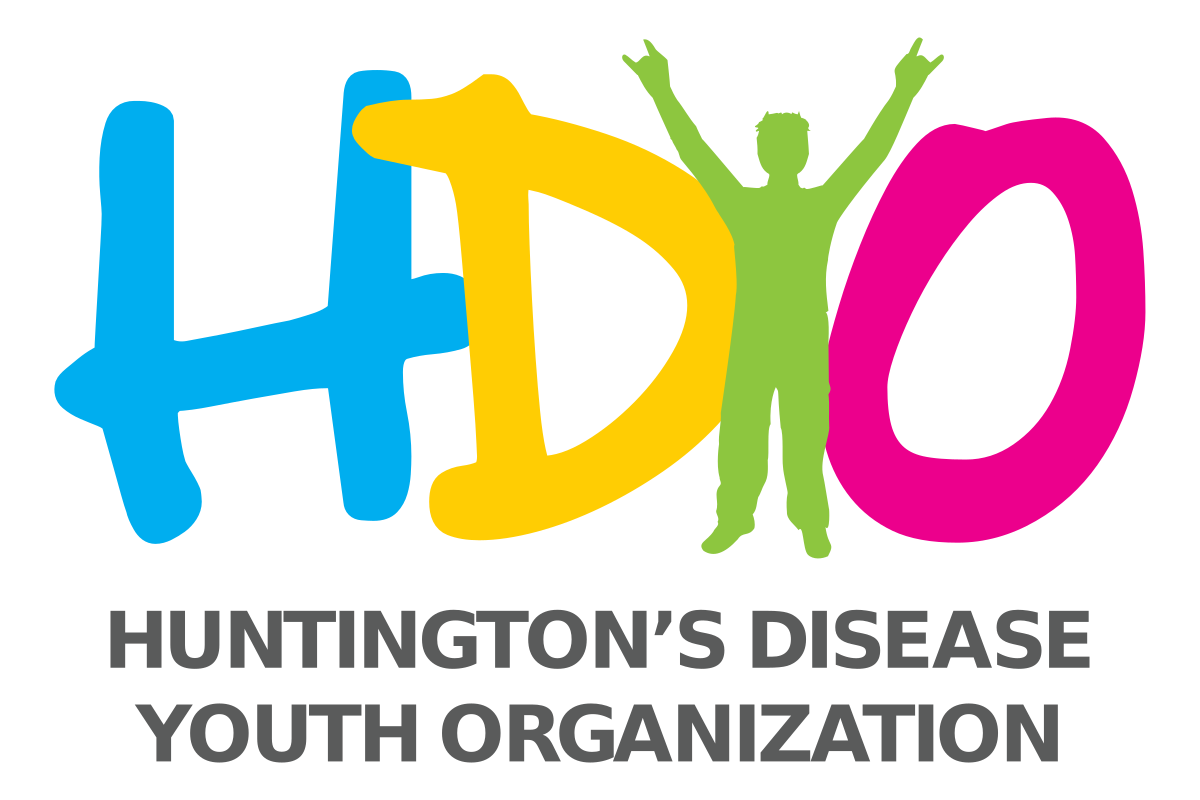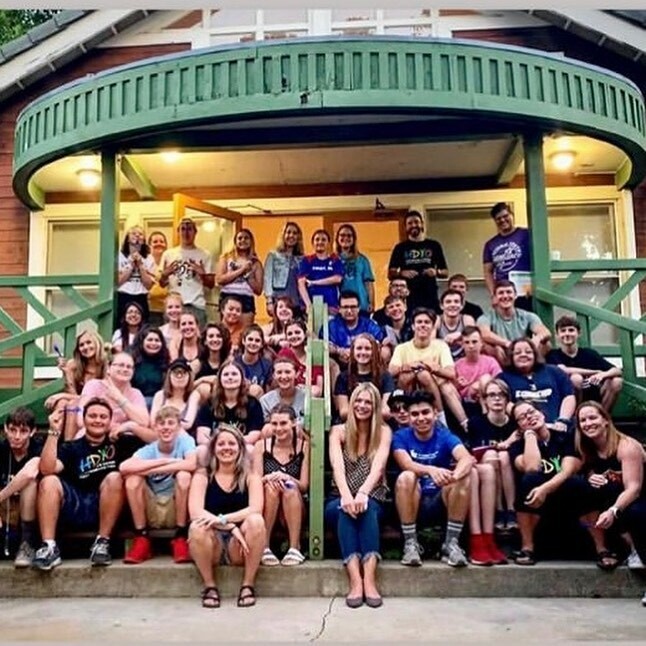Understanding the Young Person's Journey for HD Professionals
July 15, 2024

HDYO has more information about HD available for young people, parents and professionals on our site:
www.hdyo.org
*Reviewed by Education and Research Committees 2024
Huntington’s Disease (HD) professionals work with young people at different stages of their HD life journey. It’s crucial to recognize that learning about HD deeply influences the lives of young people in unique ways. Understanding their journey is important for professionals working in this field, to provide effective support and guidance. Young people already face distinct developmental and life milestones. HD impacts them differently, depending on those milestones. By comprehensively understanding their journey, HD professionals can tailor interventions and support systems, to address their specific needs, at different stages of life. This article aims to describe how a typical young person’s journey might look and explain how the news of learning about HD, affects the young person’s life trajectory.
Young Person Journey Outside Of HD
Childhood and Pre-teens (under 13 years old):
- Physical Development: Experiencing rapid physical growth and development, including gains in height, weight, and motor skills, as they explore and engage with their environment.
- Cognitive and Emotional Development: Exploring and using their imagination, laying the groundwork for the basics of learning and emotional understanding.
- Social Development: Understanding and developing relationships with peers, families and important adults in their lives, forming the foundation for social interactions and communication skills.
- Independence: Being highly dependent on trusted adults for basic survival and developmental needs, gradually learning to navigate the world with increasing autonomy and confidence.
Teens (13 – 18 years old):
- Physical Development: Significant physical changes like puberty, growth spurts and the development of secondary sexual characteristics.
- Cognitive and emotional development: Engaging in abstract thinking, problem-solving, and identity exploration, demonstrating increased independence in decision-making while still relying on guidance from trusted adults.
- Social Development: Forming deeper relationships with peers, while relying on family for guidance. They explore identities, face peer pressure and navigate romantic relationships.
- Independence: Still needing guidance but asserting more independence, exploring interests and hobbies that reflect their identities.
Young Adulthood (18 –35 years old):
- Physical Development: Reaching peak physical health and fitness levels, focusing on maintaining overall well-being through exercise, nutrition and preventive healthcare practices.
- Cognitive and Emotional Development: Continuing to refine cognitive skills and emotional regulation, navigating complex life challenges with increasing maturity and resilience.
- Social Development: Establishing themselves in careers or academic pursuits, forming professional networks, deepening connections with romantic partners, friends and colleagues and deciding on family and future planning.
- Independence: Transitioning into independent living, managing finances, pursuing higher education or careers and making important life decisions, balancing personal aspirations with commitments to loved ones.
Effects Of Learning About Being Impacted By HD At Each Stage
Childhood and Pre-teens:
- During childhood and pre-teens, a young person may not fully grasp the implications of HD on their life, but they may witness its effects on a family member, such as a parent or grandparent. This experience can be confusing and distressing, especially if they notice changes in behavior or physical abilities in their loved ones. It may lead to feelings of fear, sadness, or even guilt, as they try to understand why their family members are different from others.
- For some children, learning about HD at this stage might instill a sense of responsibility or duty to care for their affected family member in the future. They may develop empathy and compassion at a young age, as they witness the challenges their family member faces. However, it can also create anxiety about their own future and genetic risk, especially when they learn that HD is an inherited condition.
Teens:
- The teenage years can be particularly tumultuous for someone impacted by the news of HD in their family. As teens grapple with questions of identity and belonging, learning about being impacted by HD can compound their struggles. They may experience a heightened sense of anxiety about their own genetic risk and future health.
- Peer relationships become even more crucial during adolescence and a young person may feel isolated or different from their peers, if they're dealing with the challenges of HD in their family. They may worry about the stigma associated with the disease and struggle to find support among their friends.
- Additionally, teens may begin to confront difficult decisions about their own future, such as whether to pursue genetic testing or how to plan for their own healthcare needs. They may feel pressure to make sense of their family history and its implications for their own life trajectory.
Young Adulthood:
- The impacts of HD may become even more evident as individuals navigate their own independence and autonomy. If they are at-risk of inheriting the disease, decisions about education, career, relationships and family planning may be complicated by the uncertainty of their genetic status.
- Young adults may grapple with questions about whether to pursue genetic testing, weighing the benefits of knowing their genetic status, against the potential psychological burden of living with that knowledge. As they navigate conversations about family medical history and the potential impact of HD on their future, they may also face challenges in forming intimate relationships.
- Career decisions may also be influenced by the impacts of HD in their family. Some young adults may feel a sense of urgency to establish themselves professionally to secure their financial future and access healthcare resources. Others may prioritize flexibility and work-life balance to accommodate potential caregiving responsibilities. Some may even feel that there is no point in pursuing a meaningful career due to the uncertainty of their future being impacted by HD.
- Feelings of resentment and identity crisis may occur if they find out about HD at this stage. Many of their life decisions may have been planned or have happened (family planning, career choices, etc.), and HD can be an upending roadblock to life as they know it.
Testing
- If gene positive, they may begin symptom searching and grappling with life between testing and the onset of symptoms.
- If at-risk, they may also begin symptom searching and might face unsettling feelings of uncertainty regarding gene testing.
- If gene negative, they may feel isolated and that their community has disappeared because of the "good news” of testing negative. Survivor’s guilt can set in as they watch loved ones with HD progress.
One Size Fits All Approach Doesn’t Work
A one-size-fits-all approach fails to address the diverse needs of young people impacted by HD at different stages of life. Each developmental phase presents unique challenges and opportunities, necessitating tailored interventions. HD professionals need to recognize the nuances of individual experiences and adapt their support strategies accordingly, to foster resilience and empowerment.
HDYO can help assist with young people’s journey. Please reach out to info@hdyo.org if you need any help.



